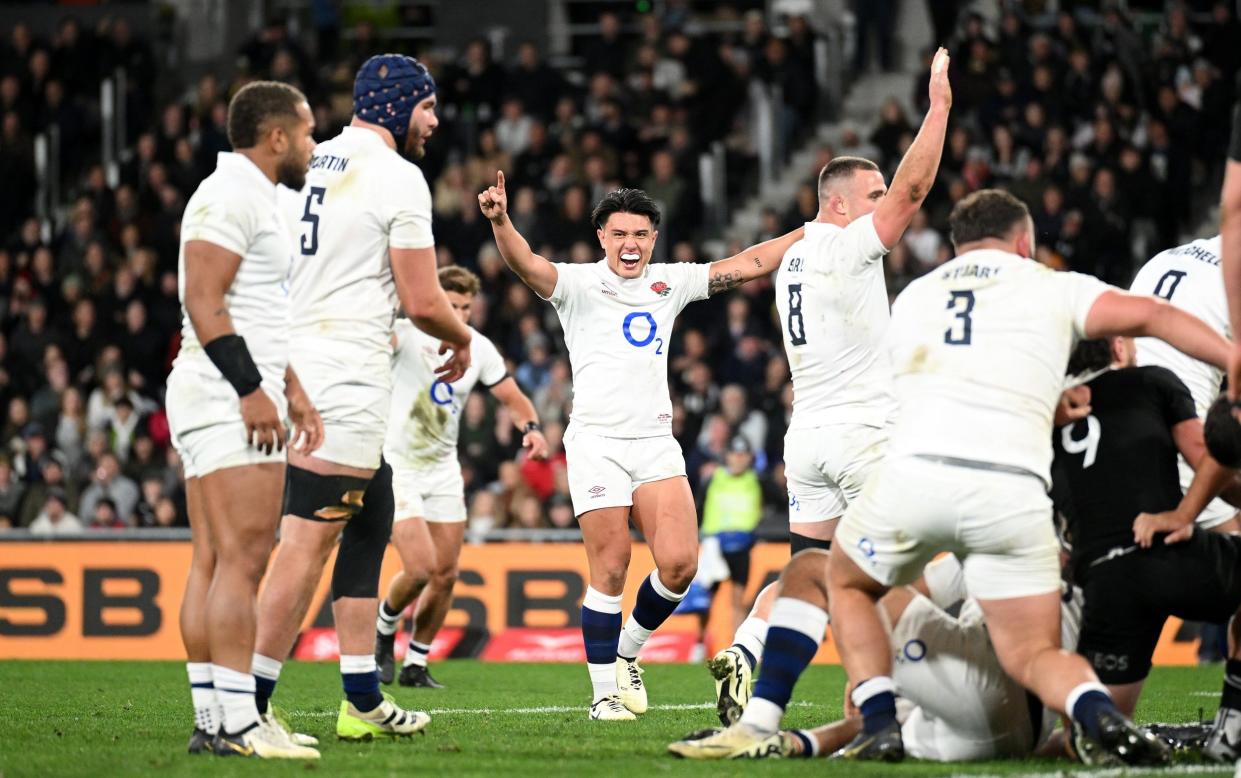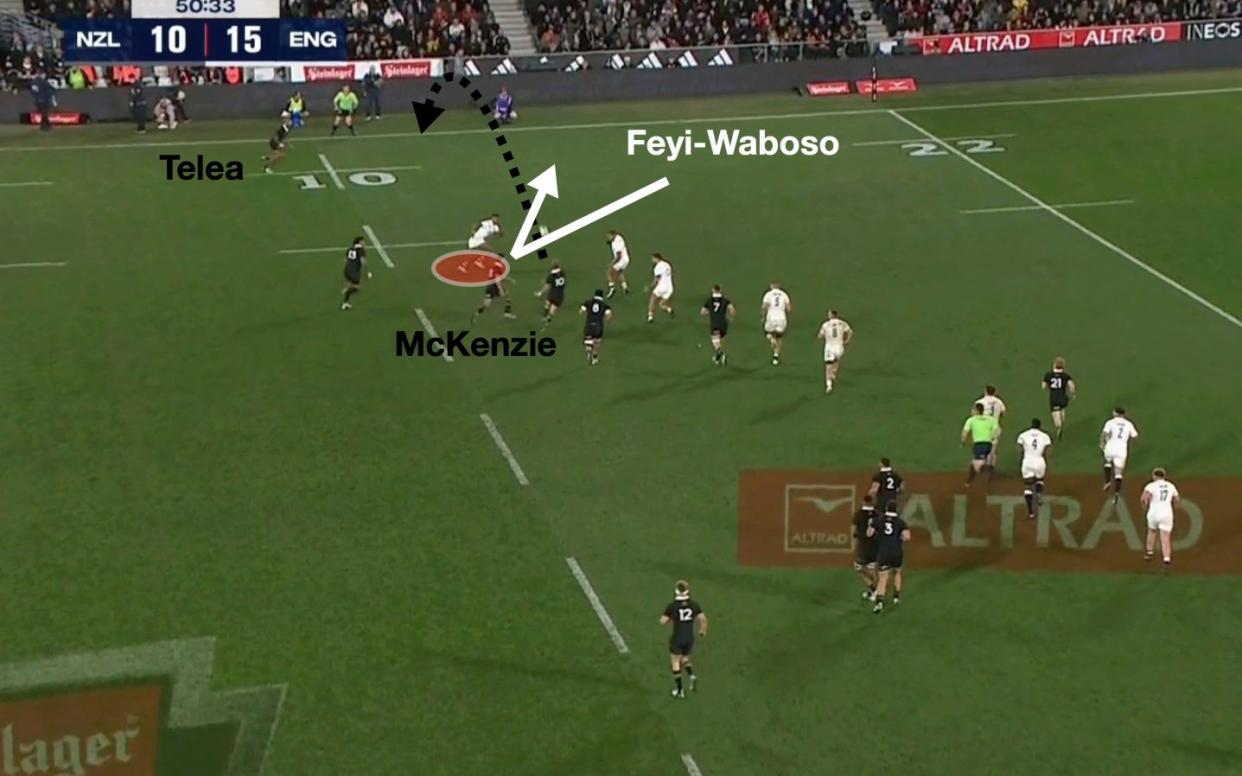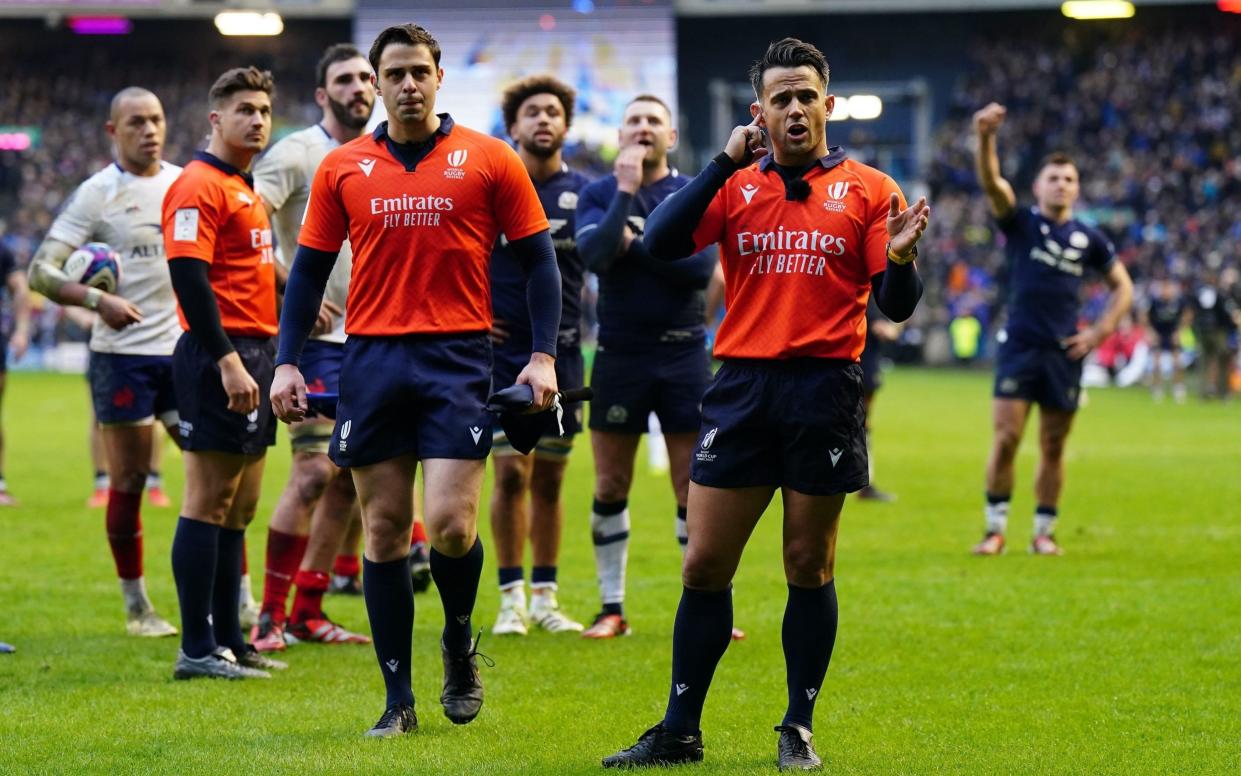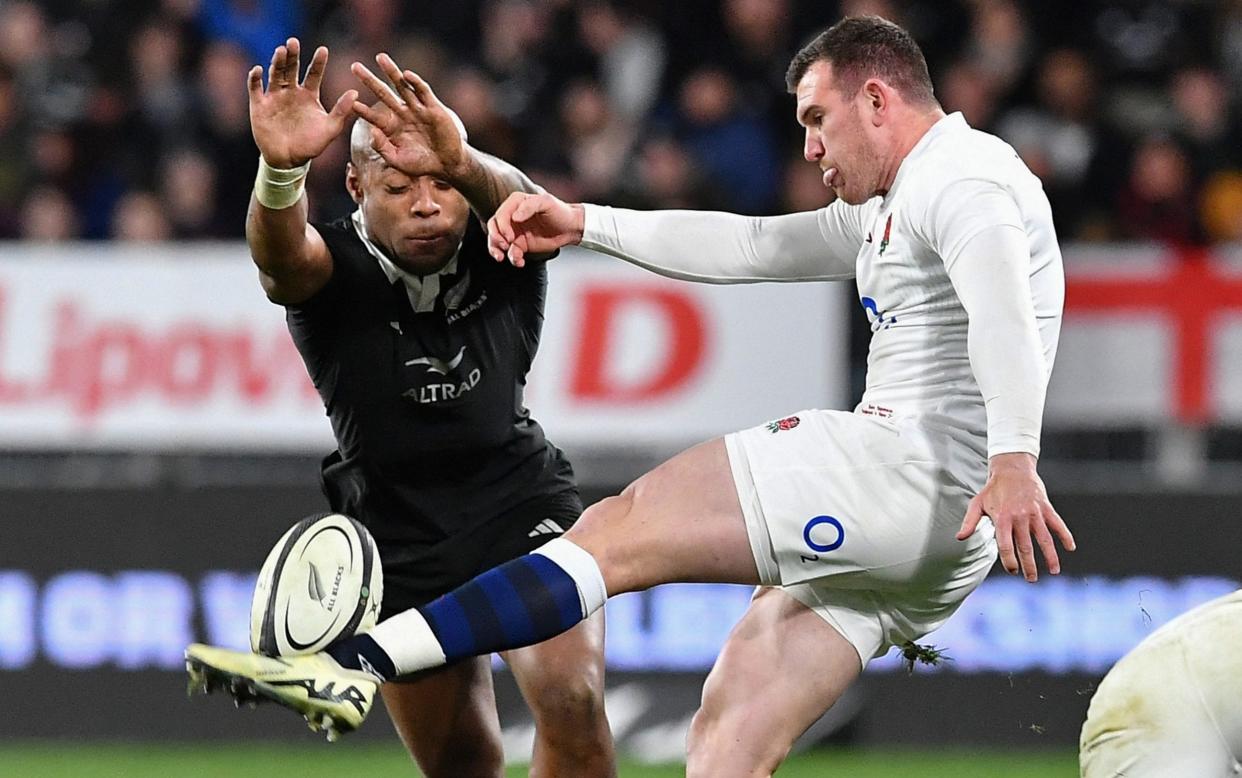What England need to do to be first team to beat All Blacks at Eden Park in 30 years

It is one of the most remarkable records in sport, let alone rugby union. You must go back 30 years to July 1994, and a 23-20 reverse against France, for the last time the All Blacks lost at Eden Park, their Auckland citadel.
England will have to snap an unbeaten run of 48 Tests, comprising 46 wins and two draws, at the venue to square the series with New Zealand. As two largely unchanged sides prepare to face off, this is what Steve Borthwick will want.
Another Itoje tour de force
The build-up to the first Test was littered with chatter about Maro Itoje’s workload at the end of an exhausting season. Before the tour, some wondered whether it might be more beneficial to keep him at home or give him a peripheral role to strengthen England’s second-row depth. What followed was a veritable stormer.
There may come a time when Itoje’s place comes into question, perhaps if George Martin and Ollie Chessum develop into a potent partnership for Leicester Tigers. But the 29-year-old Saracen remains capable of show-stopping performances. He produced them on the 2021 British and Irish Lions tour, at last year’s World Cup and even during the 2024 Six Nations.
Last weekend, Itoje popped up for an opportunistic try after a clever line-out peel that he would have called himself. Alongside Ollie Lawrence, he was England’s biggest turnover threat, forcing two steals. For this one, he bides his time as a wrestly tackle collapses before pouncing over the ball, jackalling cleanly and presenting the ball to Fin Baxter:

Having emerged as an irritator-in-chief, Itoje has become a strategic line-out leader. Those skills were put under the microscope in Dunedin with Chandler Cunningham-South and Martin as the other two main jumpers. There were early jitters, with one Jamie George throw bumping the back of Cunningham-South’s head, yet England were reasonably accurate from there on.
On opposition ball, Itoje disrupted superbly. He rose to nab this line-out…

…and earned a free-kick later on. Marking up Ardie Savea, the looming Itoje caused Asafo Aumua to dummy a throw.
Stifling the New Zealand line-out is essential if England are to conquer Eden Park. Itoje, you sense, must squeeze out one more stellar display from this 13-month campaign.
More scrambling synergy
Ultra-aggressive blitz defence, such as the system implemented by Felix Jones, aims to impart pressure with a narrow press that devotes extra attention to opposition playmakers. Players press up and in, often swimming past flat runners to ‘sack’ deeper-lying distributors behind the gain line.
Even if this goes extremely well, as it did for England at Forsyth Barr Stadium, there is a trade-off. The approach is predisposed to conceding line breaks. In the first Test, the All Blacks registered nine of those. That they scored only 16 points was, in part, because of England’s collective ability to cover in behind the rushing defenders.
This is a great example. TJ Perenara feeds Ethan de Groot, who pulls the ball back to Damian McKenzie. Martin surges past the tip option of the All Blacks pod, Samipeni Finau, to ruffle McKenzie. Beyond him, however, Cunningham-South bites onto Patrick Tuipulotu rather than jamming more narrowly to follow Martin. That leaves a huge hole for Scott Barrett and McKenzie sends him through.
But watch Ben Earl. Initially opposite De Groot, he turns and speeds underneath the front line to chop down the carrier:

Out wide, these readjustments are even more vital. Here, New Zealand have just forced a turnover from the restart after Immanuel Feyi-Waboso’s try. They spread the ball to the far flank. As McKenzie picks up a pass from Savea, with Stephen Perofeta and Rieko Ioane arcing to his outside, Feyi-Waboso shoots all the way in.
McKenzie takes the invitation to find Mark Telea over the top, yet Feyi-Waboso is athletic enough to slam on the brakes and retreat, shepherding Telea towards the touchline. Henry Slade covers well, too, and is unfortunate to knock on:

From this position, as McKenzie releases the pass to Telea, Feyi-Waboso looks to have endangered England by leaving a huge amount of space:

As a whole, though, England are learning to adapt to the compromising situations that they get themselves into with such an aggressive blitz. George Furbank, who has covered a huge amount of ground swinging from flank to flank and arriving on the outside shoulders of his wings, has been an integral component, so Freddie Steward must step up.
England must replicate their effort and commitment in Auckland. In the absence of Perenara, they might have specific plans to ruffle Finlay Christie as well.
Buck up at the breakdown
England lost eight of the 76 rucks they spent in possession in the series opener, according to Stats Perform. That return is crippling for teams, because surrendered rucks can mean a variety of damaging things: a conceded penalty, a derailed attack or coughing up a counter opportunity.
Conversely, the All Blacks lost just three of 117. The breakdown holds a mirror up to different aspects like cohesive support play and technique in the clear-out. They might not have agreed with all of Nika Amashukeli’s refereeing interpretations, but England were second best and paid the price.
Amashukeli also oversaw their win over Ireland in March, which brought a far tidier return of 80 rucks won from a total of 84. England scored three tries with that foundation, and worked their way up the pitch for Marcus Smith’s winning drop goal. Borthwick had highlighted New Zealand’s breakdown disruption as a danger at the start of June, so would have been especially frustrated.

While kicking is one way to mitigate defensive pressure on the breakdown, England strung together 14 slick phases for Feyi-Waboso’s try. As well as controlling territory and posing questions in the air, they will want Alex Mitchell scooting around the ruck and Steward running the ball back from deep.
They will be eager for Smith to run flat with bodies in motion around him. Feyi-Waboso and Tommy Freeman should roam and pick up touches. It is a question of the tourists holding their nerve and improving accuracy to appease referee Nic Berry.
Better use of the bench
It is easy to criticise replacements in retrospect, especially without any in-depth knowledge of players’ conditioning. Still, England did lose impetus in the final quarter as they gradually let slip a 15-10 advantage. Mitchell went off after 57 minutes, having lasted 68 against Wales, 65 against Ireland and 69 against France during the Six Nations.
One wondered, also, whether keeping on Smith might have sparked England, spurring them out of the stalemate that the last 10 minutes became, or at least shaking off what appeared to be a conservative mindset of containment. In truth, Borthwick just needed better performances from Alex Coles and Tom Curry, both of whom conceded avoidable penalties.

Ben Spencer was clearly introduced as part of a plan to hoist contestable box-kicks with a view to retrieving possession or at least pinning back the hosts, but New Zealand were too secure in the back-field. Borthwick is confident in his squad and has resisted wholesale changes to his match-day 23. Just after half-time, in consultation with Aled Walters, his conditioning guru, he will have more critical decisions to make.
Box clever at the scrum
The first 50 minutes of the World Cup semi-final, while England had a front row of Joe Marler, Jamie George and Dan Cole, yielded the most convincing scrummaging performance of the Borthwick era. Since then, as a mark of how those veterans must be managed in open play, Marler and Cole have been split. One has started, with the other on the bench.
Marler’s foot injury, with Ellis Genge already injured and Beno Obano suspended, has sent Borthwick down the loosehead depth chart. Jason Ryan, meanwhile, has turned the All Blacks’ scrum into a formidable operation. This shove in Dunedin was a sobering statement of New Zealand dominance:

Fin Baxter, George and Will Stuart should be a sturdy starting unit and Ethan de Groot’s angles will be monitored carefully. Finishing with Bevan Rodd and Theo Dan, England will probably be under pressure again during the final quarter. On their own put-in, they will have to move the ball away quickly. On opposition ball, they will need to dig in and lock out to avoid penalties. Might Martin be moved across to the loosehead side for additional ballast?
Efficiency everywhere
Clearly, England cannot hope to land a famous victory with more profligacy from the tee. Smith, normally reliable for Harlequins, has to step up. Henry Slade is an able deputy. But other areas – gathering restarts, clearing the ball up-field from their own half, the launch plays that were so sloppy in the first Test – need to be sharper as well.
A winning mindset
Borthwick’s team will not want to become known as nearly men. But, in the past nine months, they have now suffered three extremely tight losses against South Africa, France and New Zealand. The positive spin is that they have tended to stay in the scrap.
All week, they will have reinforced how only the finest of margins – a breakdown penalty here, a missed kick there – cost them victory in Dunedin. Theoretically, the All Blacks should be better. Yet the England brains trust, led by Borthwick and Jones, have now had a look at New Zealand. And there should be no sense of inferiority, as there might have been in the past.

Take Sam Underhill, for instance. He has faced New Zealand three times now, going down twice by the same scoreline, 16-15, and beating them once. Itoje and George played all 80 minutes of the Lions’ win in Wellington seven years ago and started the draw at Eden Park a week later.
This remains a far greener All Blacks team, and the weight of history might feel claustrophobic for Scott Robertson’s men in the final stages – as long as England have done enough to be in touch.


